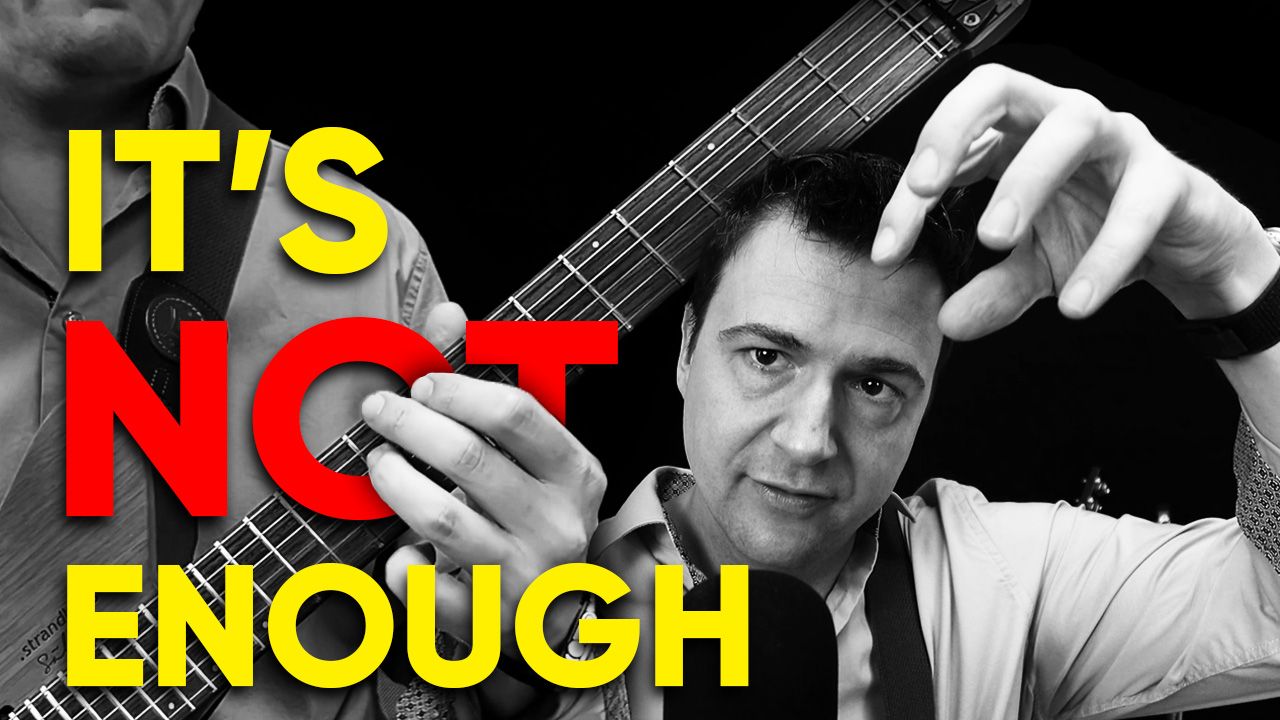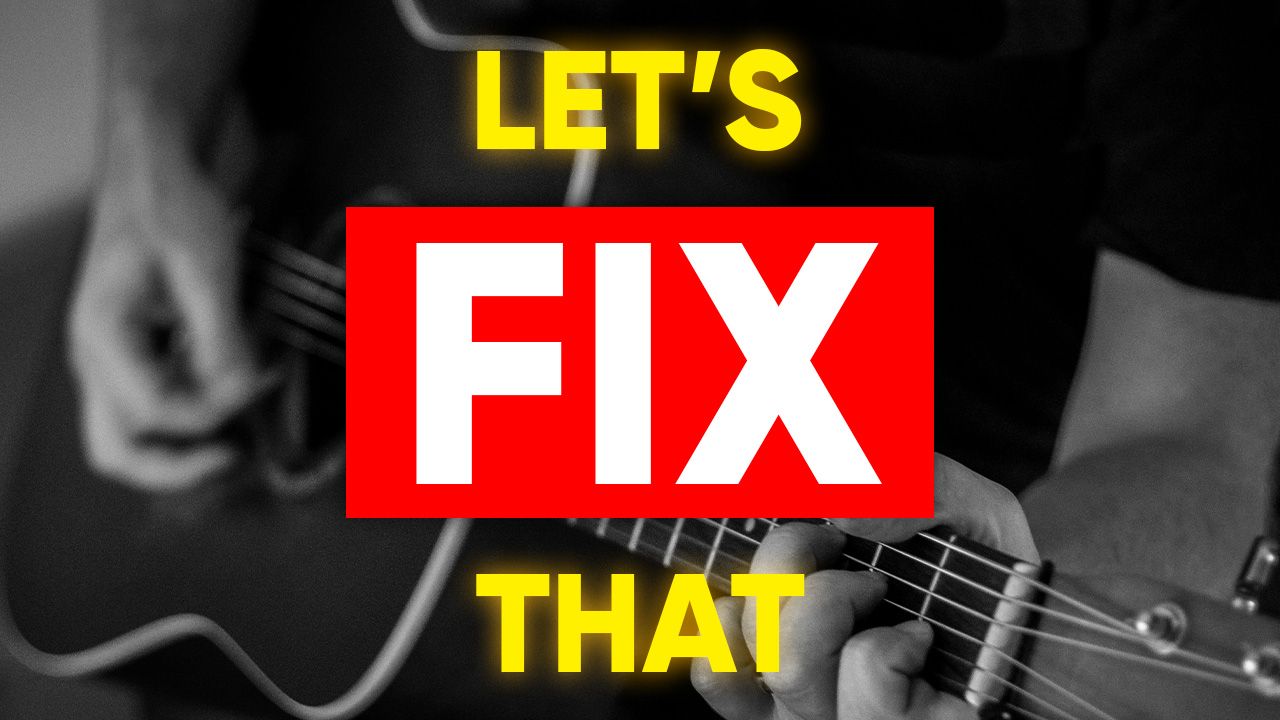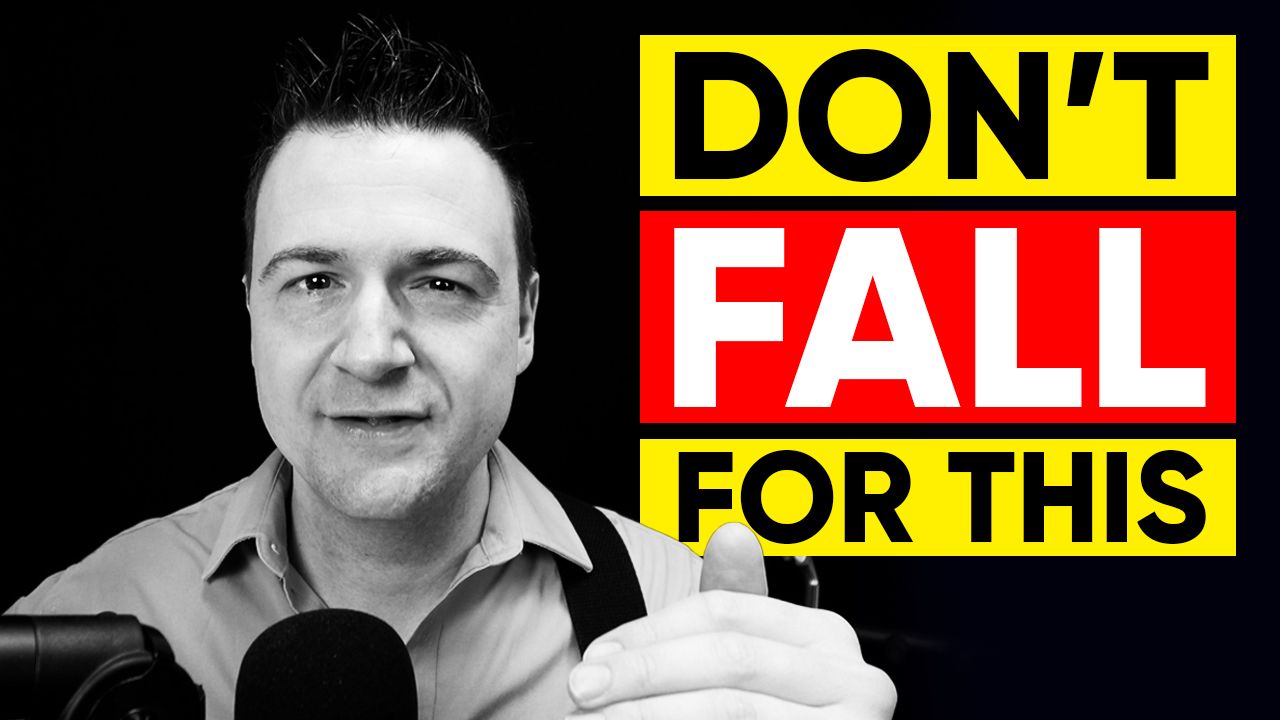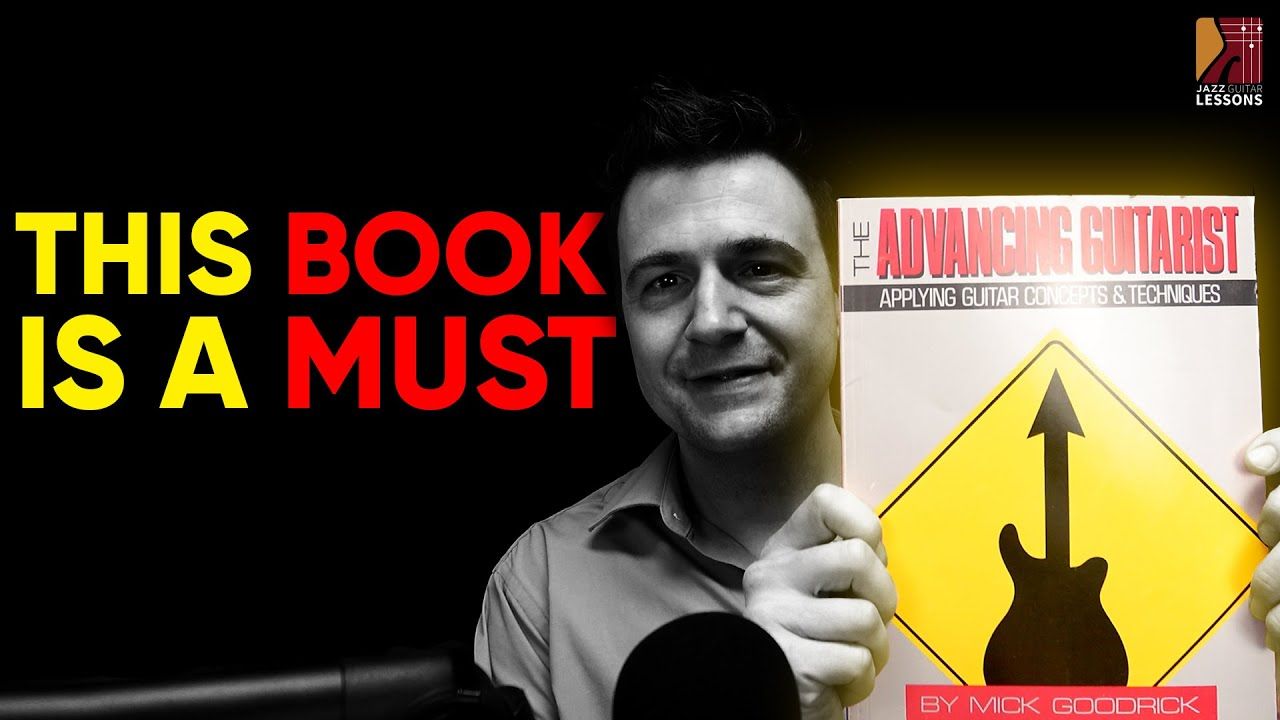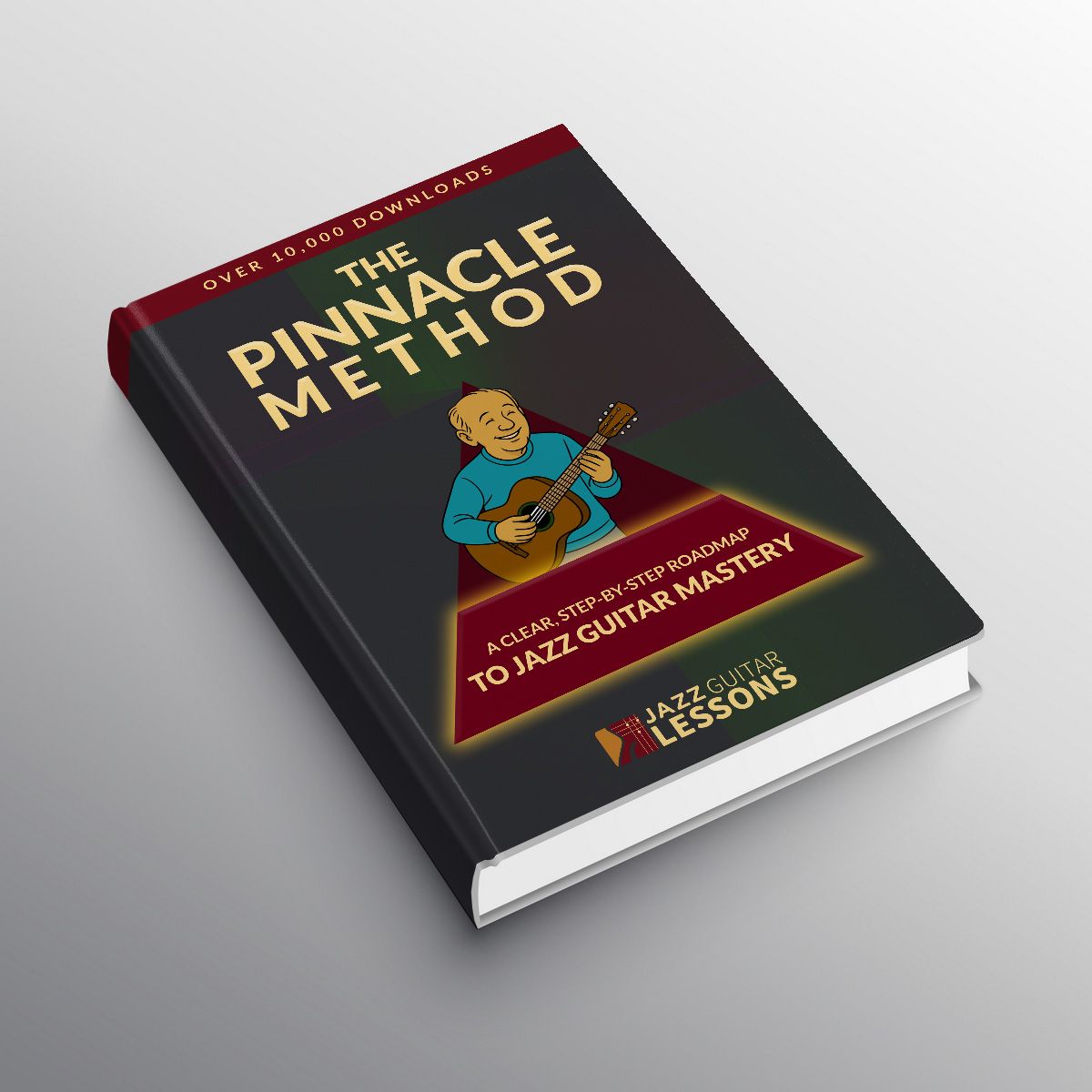
Top 4 Things My Successful Students Are Doing
Jan 24, 2025What My Best Jazz Guitar Students Do Differently: 4 Proven Tips to Transform Your Playing
Ever wonder what separates average jazz guitarists from those who truly thrive and grow into skilled improvisers? What are the secret habits and techniques that elevate some students above the rest? Over the years, I’ve worked with thousands of jazz guitarists, and I’ve identified a handful of practices that my best students consistently follow. These aren’t random hacks—they’re transformative shifts that can take your playing to the next level.
In this post, I’ll share the four key habits my top-performing students implement. These tips are simple to understand, but when applied consistently, they can completely change the way you learn and play jazz guitar. Plus, I’ll throw in a bonus tip at the end that might surprise you. Let’s dive in!
1. Focus on Songs, Not Just Drills
Here’s a quick story. Imagine someone learning basketball. They spend hours every day practicing dribbles, shooting hoops, and perfecting their form. But when their friends invite them to play a pick-up game, they decline because they feel they’re “not ready yet.” Sound familiar?
This is what many jazz guitar students do. They drill scales, arpeggios, and exercises endlessly but never actually play music. My best students flip this mindset—they’re song-centric. They spend at least 80% of their practice time working on actual songs, using drills only to solve specific challenges they encounter within those songs.
Here’s the takeaway: Make songs the centerpiece of your practice. Learn standards, work on chord progressions, and integrate your drills as tools to enhance your musicality—not as an end in themselves.
2. Seek and Implement Feedback
The greatest athletes, artists, and musicians all have one thing in common: they seek guidance. Think about Michael Jordan. After every game, his trainer would ask, “5, 6, or 7?”—referring to what time they’d meet the next morning for training. Feedback wasn’t optional; it was essential.
My top students actively seek feedback. They submit videos, participate in coaching calls, and genuinely embrace advice from their peers and mentors. The key here isn’t just getting feedback—it’s implementing it.
Pro Tip: Never think you’re “too advanced” or “too beginner” for feedback. Whether you’re tackling your first jazz tune or refining complex improvisations, outside perspectives will always help you improve faster.
3. Join a Supportive Community
Learning in isolation is a recipe for stagnation. Whether it’s woodworking, writing, or learning jazz guitar, shutting yourself off from the world often leads to frustration and burnout. My best students stay connected to a community—whether that’s a local jam session, an online group, or regular playing with friends.
Being part of a community provides accountability, encouragement, and valuable insights. Plus, it reminds you that you’re not alone. Almost everyone struggles with the same challenges, and sharing experiences can lead to breakthroughs you might not achieve on your own.
If you’re looking for a great place to connect, join the Jazz Guitar Fellowship—our free community of passionate guitarists. Rub shoulders with some of the fastest-growing players I’ve mentioned here and get inspired by their progress.
4. Ditch the Dogma
Have you ever tried a crash diet? You know how it goes—you push hard for a few weeks, lose some weight, and then gain it all back (and more). The same thing happens in jazz guitar when students adopt rigid, unsustainable approaches.
Some believe they must master all theory before they can play a single note, while others rely solely on intuition, refusing to engage with technical concepts. My best students avoid these extremes. They adopt a balanced, no-dogma approach, blending theory and feel, discipline and creativity, structure and experimentation.
The key is consistency over intensity. Instead of trying to “cram” your progress into a few months, focus on steady, sustainable growth. Progress happens when you show up consistently, without being paralyzed by rigid rules or unrealistic expectations.
Bonus Tip: Take Care of Your Health
This might sound unrelated, but hear me out. Your physical health directly impacts your ability to learn, focus, and perform. Many of my top students prioritize exercise, healthy eating, and good sleep. Staying physically active helps you stay mentally sharp, which translates to better practice sessions and faster progress.
If you’re looking for guidance on building healthier habits, I highly recommend checking out Precision Nutrition. It’s a year-long program that’s helped countless people transform their health (myself included!).
Recap: The 4 Tips to Transform Your Jazz Playing
- Focus on songs: Make standards the foundation of your practice.
- Seek feedback: Embrace coaching and advice from mentors and peers.
- Join a community: Surround yourself with supportive musicians.
- Ditch the dogma: Stay balanced and consistent in your approach.
Ready to Take the Next Step?
If you’re serious about improving your jazz guitar playing, don’t go it alone. Check out my 7-Stage Process for mastering standards—available in this video and in a detailed document linked below. It’s a step-by-step system that will help you apply these tips and transform your playing.
And remember, the journey is always easier (and more fun!) with the right people by your side. Join the Jazz Guitar Fellowship, connect with other passionate guitarists, and start implementing these proven strategies today.
Let’s make this year your breakthrough year! See you in the community. 🎸


